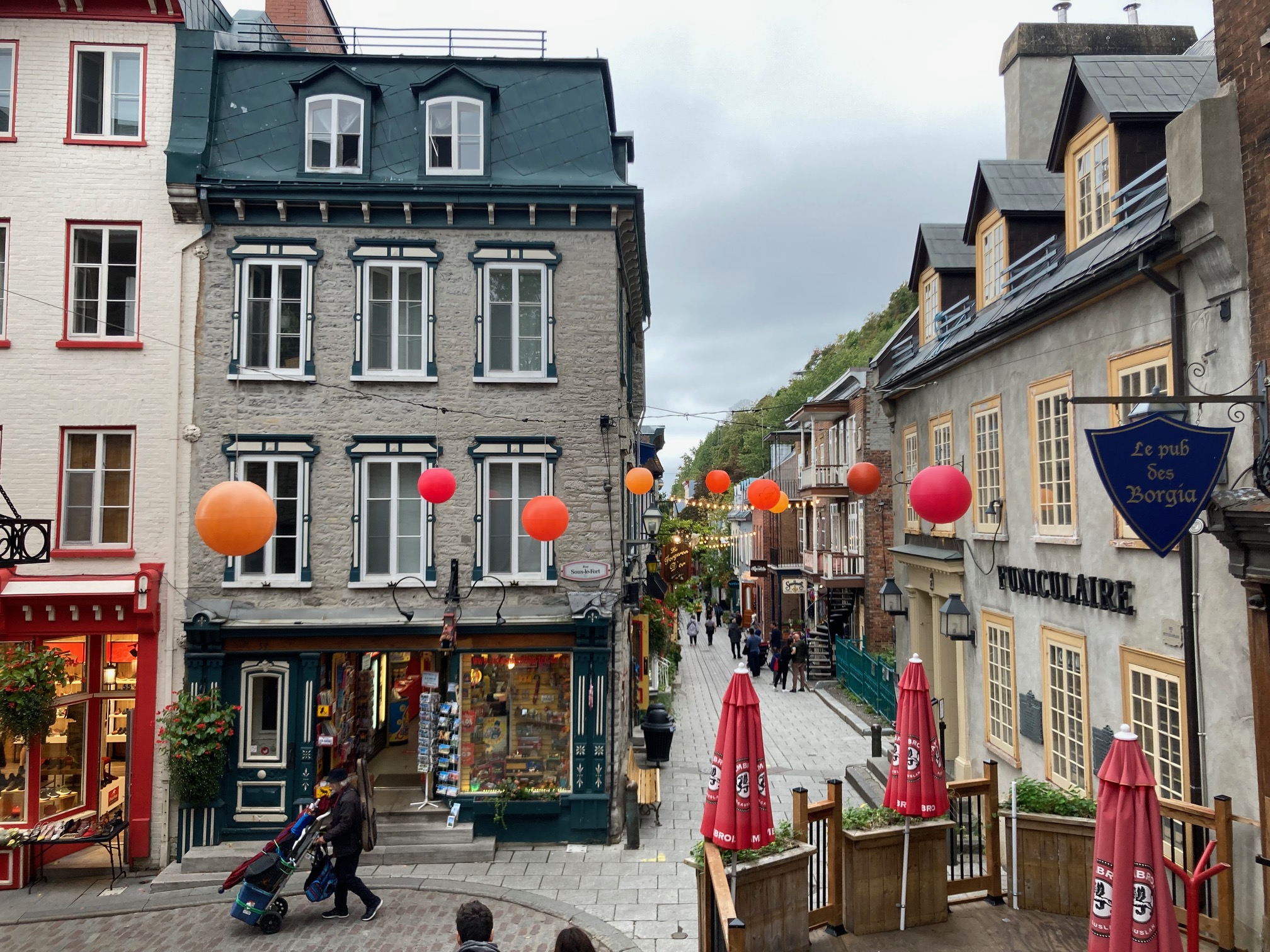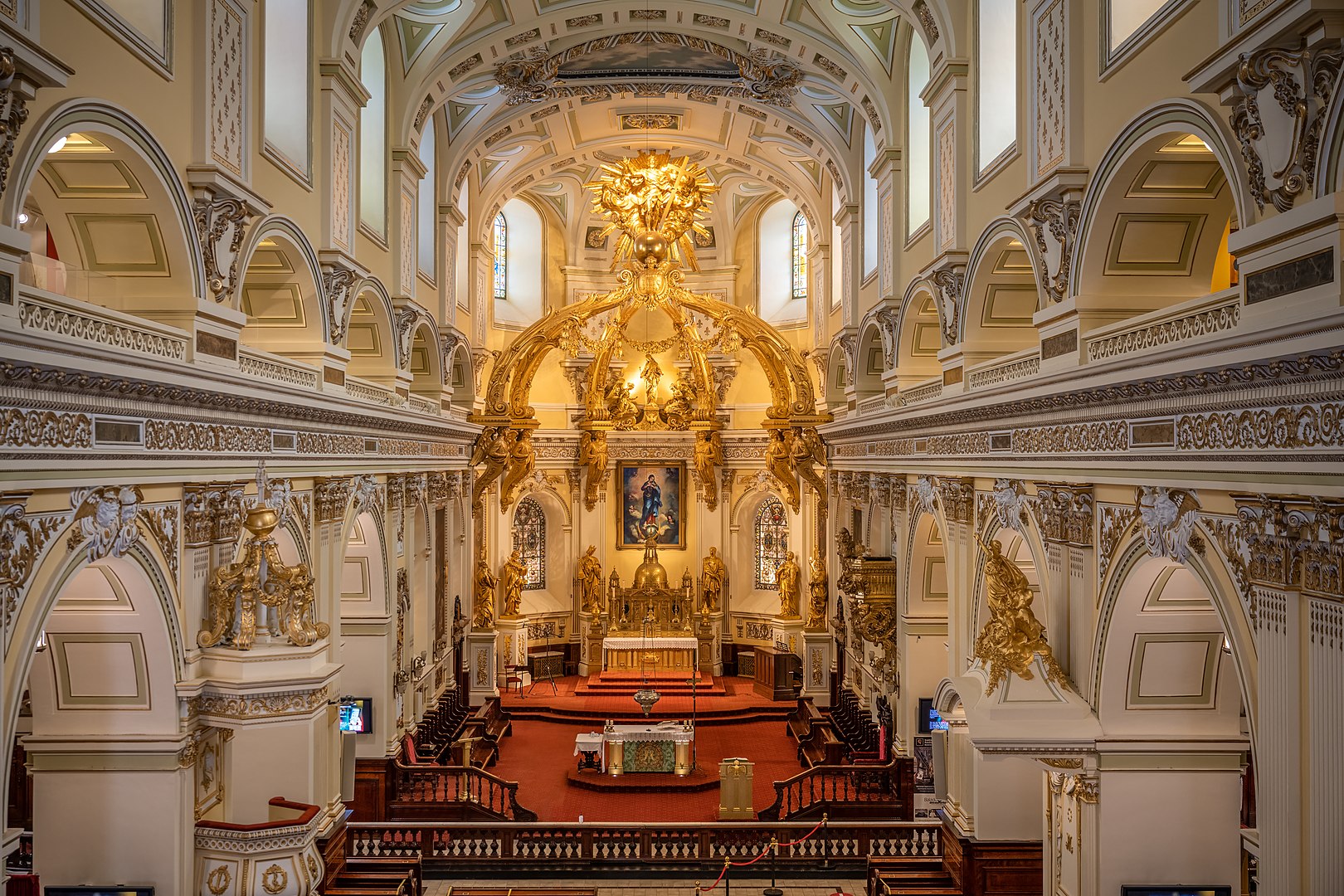What comes to mind when you think of Quebec City?
 If you didn’t say “revolution,” you would not be alone. With its dramatic clifftop location overlooking the mighty St. Lawrence River, its fortification walls, narrow winding streets and wealth of historic buildings, Quebec City charms visitors with its picturesque views and old-world French feel.
If you didn’t say “revolution,” you would not be alone. With its dramatic clifftop location overlooking the mighty St. Lawrence River, its fortification walls, narrow winding streets and wealth of historic buildings, Quebec City charms visitors with its picturesque views and old-world French feel.
But you might also associate Quebec City with the Quebec independence movement and occasional tensions with English-speaking Canada. The 1960s were a period of intense sociopolitical and cultural change, and not just in the United States, Asia and Europe.
 In Quebec, this was the time of the Quiet Revolution—the battle to overthrow the perceived tyranny of the Catholic Church and the dominance of the English-speaking minority over the French-speaking majority, most of whom were poorer and less educated than their anglophone counterparts. In a single decade nearly all governmental and religious institutions were transformed through electoral politics, resulting in the effective secularization of society and the establishment of a government-run welfare state. Most important of all, the government of Quebec invested massively in education, creating a new college system and expanding universities that still offer the lowest tuition fees in North America. By making higher education available for everyone, the Quiet Revolution laid the foundation for the successful and prosperous society that Quebec is today.
In Quebec, this was the time of the Quiet Revolution—the battle to overthrow the perceived tyranny of the Catholic Church and the dominance of the English-speaking minority over the French-speaking majority, most of whom were poorer and less educated than their anglophone counterparts. In a single decade nearly all governmental and religious institutions were transformed through electoral politics, resulting in the effective secularization of society and the establishment of a government-run welfare state. Most important of all, the government of Quebec invested massively in education, creating a new college system and expanding universities that still offer the lowest tuition fees in North America. By making higher education available for everyone, the Quiet Revolution laid the foundation for the successful and prosperous society that Quebec is today.
What led to such radical changes? How did they come about? What made the Revolution “quiet”? Was it successful? And what has transpired during the past 50 years?
Whether you know a little or a lot about French Canada, I invite you to join me in the city where it happened. We will explore the questions above and more through guided walks, literary discussions, film clips, and meetings with Quebecers—those who were active in or witness to events of the ’60s, and younger people as well.
 Who better to immerse us in the history of Quebec City and introduce us to its people than David Mendel. A resident of Quebec’s historic district since 1976, David is very much a part of both the French and English communities of Quebec City through his work as an historian, author and guide. With David we will trace the rise of the church as the self-proclaimed leader of Quebec, its wealth and power communicated through magnificent works of art and architecture, and the establishment of a French Canadian identity centred on religion and language. As we follow the dramatic events of the ’60s and the dismantling of clerical power, we’ll seek to understand how the revolutionaries saw themselves, and how today’s Quebecers work though the often-complicated question of identity.
Who better to immerse us in the history of Quebec City and introduce us to its people than David Mendel. A resident of Quebec’s historic district since 1976, David is very much a part of both the French and English communities of Quebec City through his work as an historian, author and guide. With David we will trace the rise of the church as the self-proclaimed leader of Quebec, its wealth and power communicated through magnificent works of art and architecture, and the establishment of a French Canadian identity centred on religion and language. As we follow the dramatic events of the ’60s and the dismantling of clerical power, we’ll seek to understand how the revolutionaries saw themselves, and how today’s Quebecers work though the often-complicated question of identity.
Our pre-trip readings will help set the context and offer more food for thought. Marie-Claire Blais’s short A Season in the Life of Emmanuel recounts the hardships and cruelties of the social conditions leading to the Quiet Revolution. The ever-popular Louise Penny’s Bury Your Dead intertwines the distant past with the tension-filled present to illuminate the undercurrents of Quebec City society, including the small but well-established Anglo community.
David and were in conversation about this trip on January 12 in our online presentation How Quebec Transformed in the 1960s.
Register here. Free and open to all!
(Crédits pour la photo: Année: 1962. © nd Auteur: inconnu. Commanditaire: Le Parti libéral du Québec. Référence: Sous la direction de Michel Plourde, Le français au Québec : 400 ans d?histoire et de vie, s.l., les Éditions Fides et Les Publications du Québec, 2000, p.238. Photo credits: 1962; author unknown. Silent partner: The Quebec Liberal Party. Reference: Under the direction of Michel Plourde, Le français au Québec : 400 ans d?histoire et de vie, s.l., les Éditions Fides et Les Publications du Québec, 2000, p.238.)

Great to see you again with Classical Pursuits. Long time no see since visiting your bookstore decades ago when I was participating in a Jane Jacobs conference. Your bookstore is gone but the nearby Market is thriving in Toronto. Coincidentally I was in Canada in the middle of one of the votes on Quebec separation on a comparative government study tour. I appreciated some interviews at lunch when they served wine, which dulled my afternoons. I look forward to your comments. Happy and Healthy Holidays.
Hello Dan!
And apologies for inexcusably tardy delay in replying to your nice note. Jane Jacobs (plus a terrific mayor) is what lured me to Toronto from NY back in the mid-70s. It would be lovely to see you again. I hope you will consider this trip to Quebec City. The Quiet Revolution is a fascinating piece of Canadian history. It changed the province forever in radical ways. Feel free to contact me with any questions you may have.